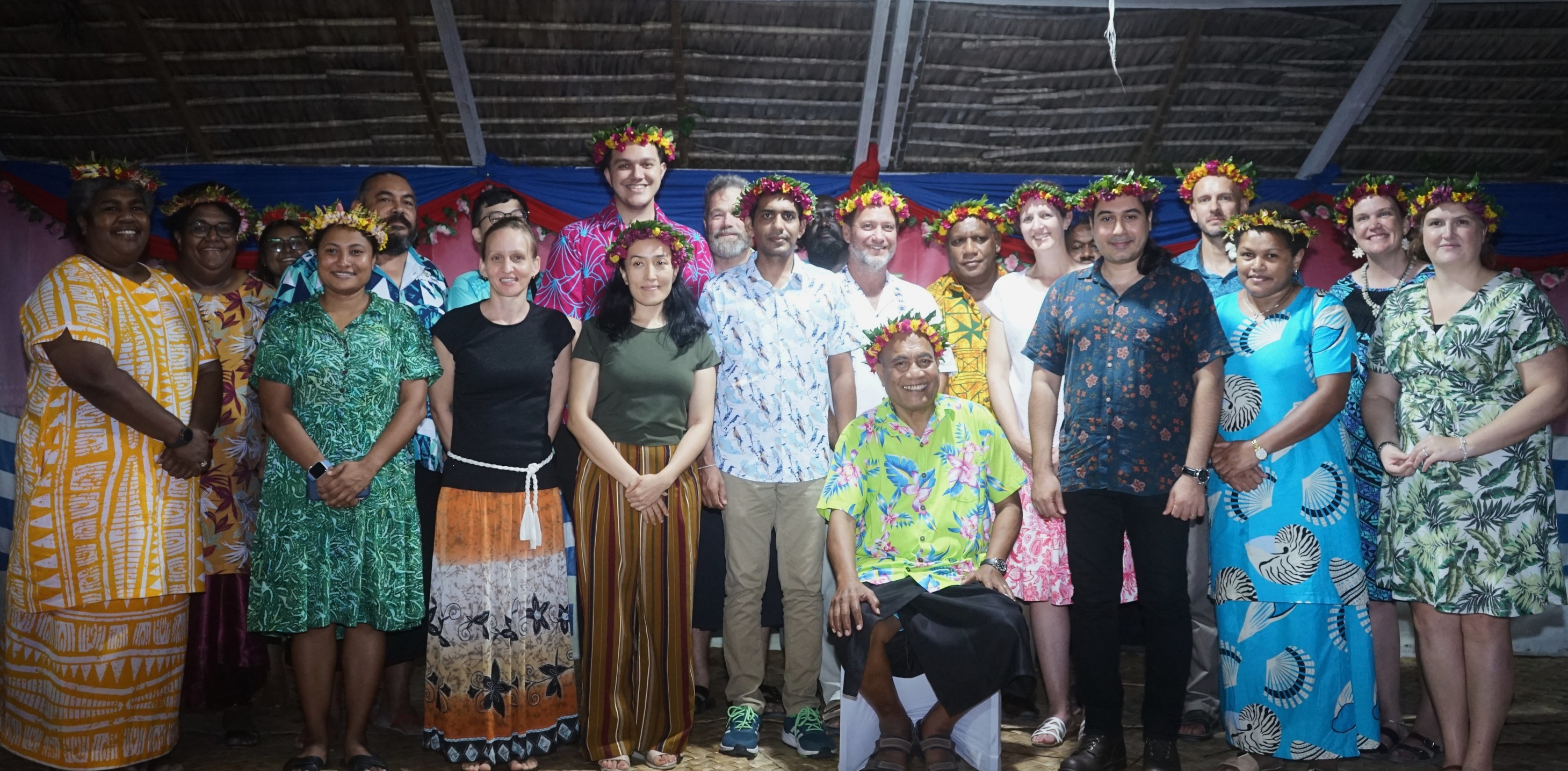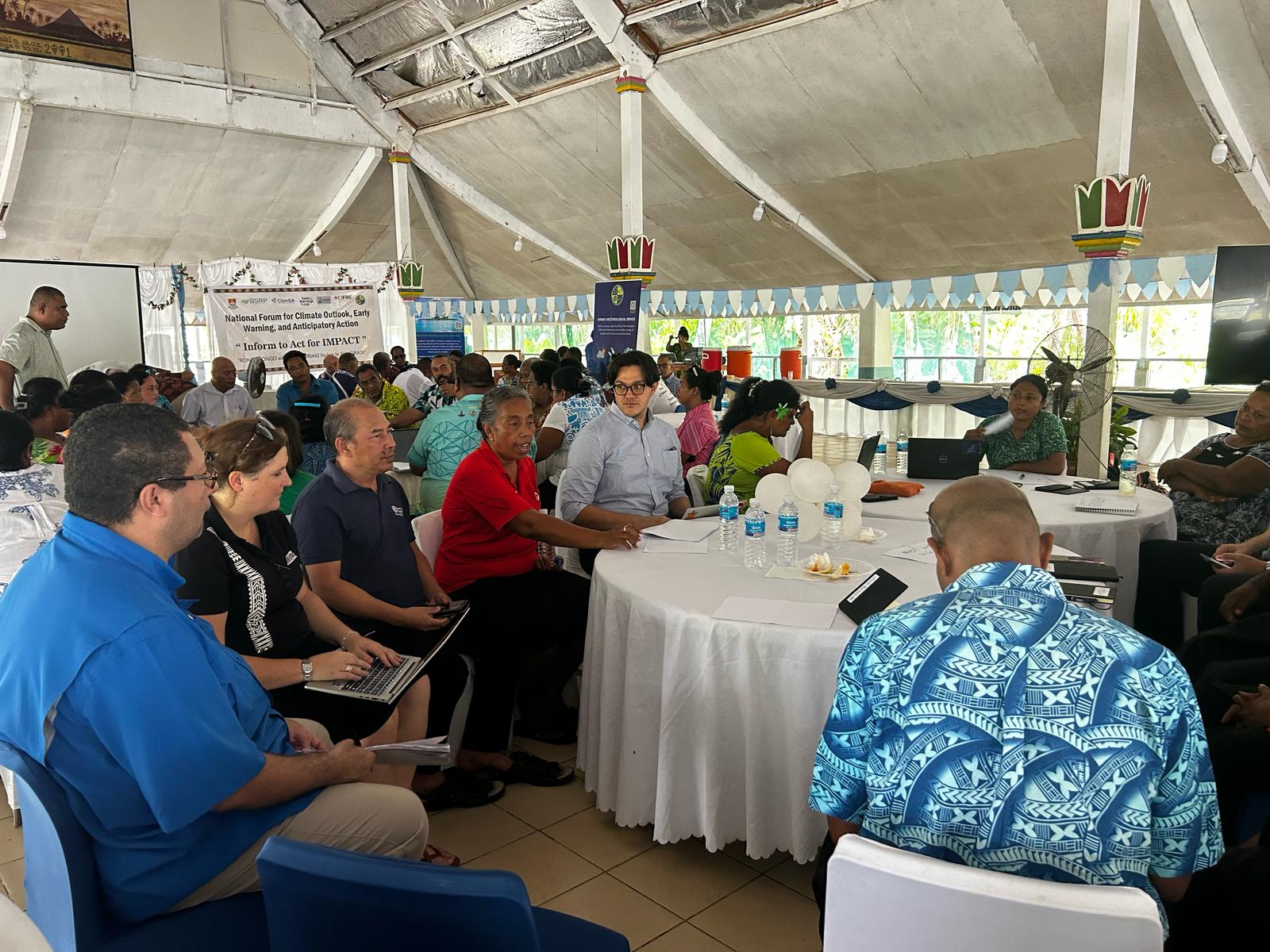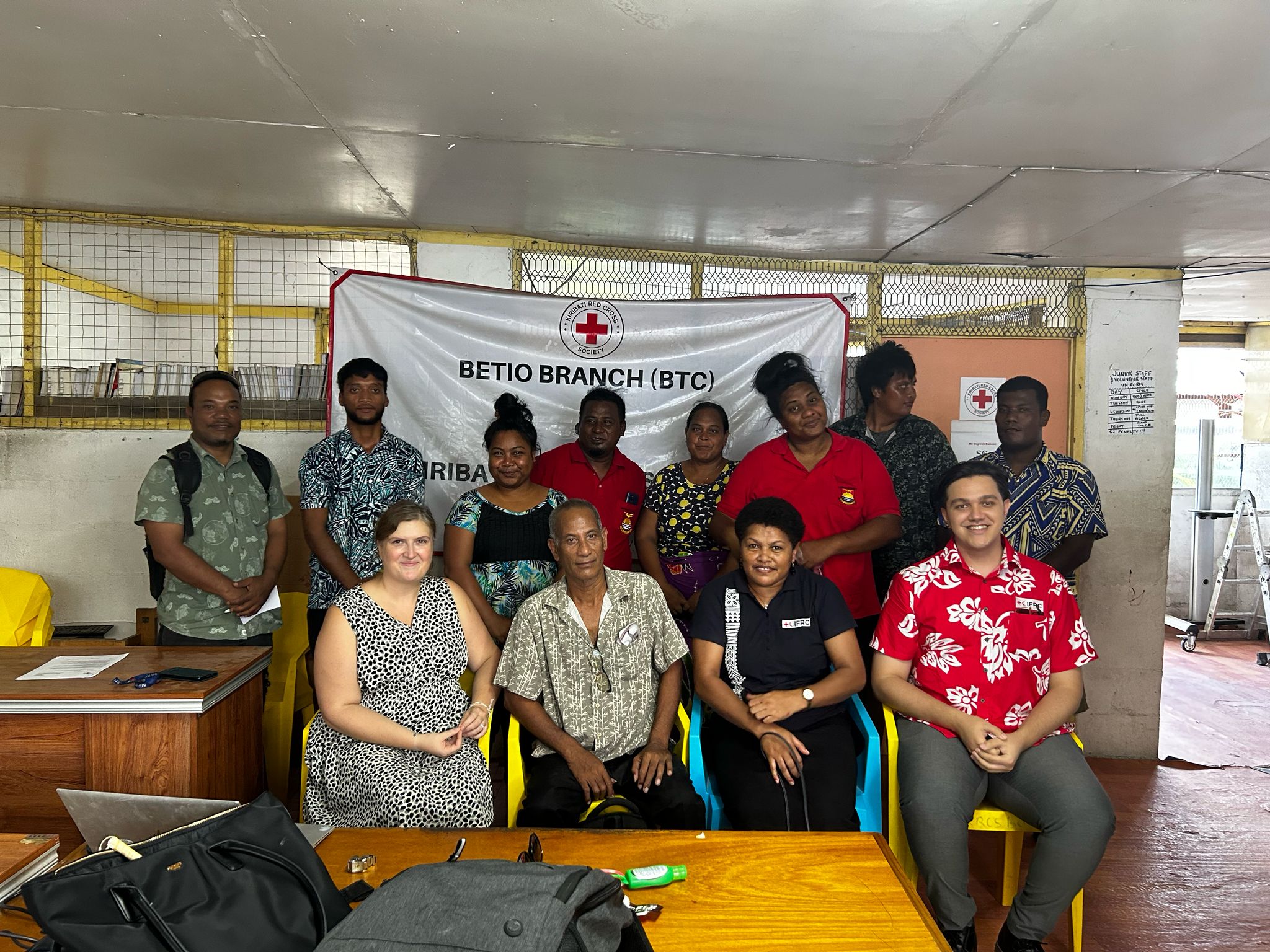Last week, Kiribati marked a significant milestone in its journey towards climate resilience with the launch of the Early Warnings for All (EW4ALL) initiative in Tarawa. As a large ocean state at the frontline of the climate crisis, where rising seas and extreme weather events threaten lives and livelihoods, the launch underscored the critical role that early warning systems play in safeguarding communities from rising risks.

But early warning systems are more than just technology – they need robust end-to-end systems and processes which require a strong legal and policy foundation to ensure that information reaches those who need it most. This is where disaster law becomes a game-changer.
Disaster law establishes the framework which enables effective preparedness, response, and recovery. It ensures that early warning systems are not only in place but are also inclusive, with actionable information, and are legally enforceable. In Kiribati, where remote outer island communities are often hardest to reach, a robust legal structure is essential for ensuring that warnings translate into timely action.
In attendance at the launch, with support from the IFRC, were mayors and clerks from Kiribati’s outer islands. Their participation was a critical component in ensuring that early warning messages and disaster preparedness measures reflect the realities of those living in remote communities. By engaging directly with local leaders, the initiative strengthens the link between national policy and community action, ensuring that disaster law reforms are both practical, impactful and informed by the users of the early warning system.

This launch is a testament to the strong relationships and coordination efforts that exist across the humanitarian sector in the Pacific. The event was jointly carried out by IFRC and UN agencies supported by regional organizations, CROP agencies and other partners– demonstrating the power of collaboration in tackling the urgent challenge of disaster preparedness and prioritising early action. Such partnerships reflect a shared commitment to building resilience across the region, ensuring that no country faces these challenges alone.
The support that IFRC provided to this event exemplifies our collective approach – bringing together the right expertise and the right funding sources to turn commitments into action. Through strategic collaboration, IFRC played a crucial role in ensuring that EW4ALL is not just a vision but a tangible step forward in strengthening Kiribati’s disaster resilience. By mobilizing technical knowledge, legal expertise, and financial resources, IFRC continues to be a key driver in advancing disaster law as a foundational element of effective early warning systems.
"Early warning systems save lives, but only if they are supported by the right policies and laws that empower communities to act," said Ernest Kristoffer Gibson, Senior Officer for Disaster Law and Advocacy at the International Federation of Red Cross and Red Crescent Societies (IFRC). "Through disaster law, we can bridge the gap between science, policy, and community action – ensuring that no one is left behind."

The EW4ALL initiative brings together key national and international partners to improve forecasting, risk communication, and community preparedness. At the heart of the effort in Kiribati, working alongside the National Meteorological Service, is the National Disaster Management Office (NDMO), which is working to strengthen legislative frameworks that support early warning and anticipatory action.
Ms. Takena Redfern, Director of Kiribati’s NDMO, emphasized the importance of these efforts, stating, "We must ensure that our early warning systems are effective for all I-Kiribati, especially those in our outer islands. Strengthening disaster law is a crucial step in making sure that every warning is not just heard but understood and acted upon."
As Kiribati moves forward in implementing EW4ALL, the role of disaster law will continue to be central in shaping an inclusive and effective early warning system. With strong legal foundations, the country is not only building resilience to future disasters but also safeguarding the wellbeing of its people in an increasingly uncertain climate.
The launch in Tarawa was not just an event – it was a commitment to a safer, more prepared Kiribati, one which can enhance effective early warning systems and allow communities to act early ahead of an anticipated threat. Through collaboration, innovation, and agile legal facilities, EW4ALL is turning warnings into action, ensuring that every life counts.
Author: Ernest Gibson
---
The IFRC Disaster Law team in the Asia Pacific region is funded in partnership with the Australian Red Cross and works to strengthen legal frameworks for disaster risk management, climate resilience, and humanitarian response. The programme’s core aims are to support governments in developing and implementing effective disaster laws, advocate for inclusive and people-centered legal frameworks, and enhance the capacity of Red Cross and Red Crescent National Societies to engage in disaster law and policy processes. Through legal preparedness, IFRC Disaster Law helps ensure that communities are better protected before, during, and after disasters.